Feb. 28, 2022 UP
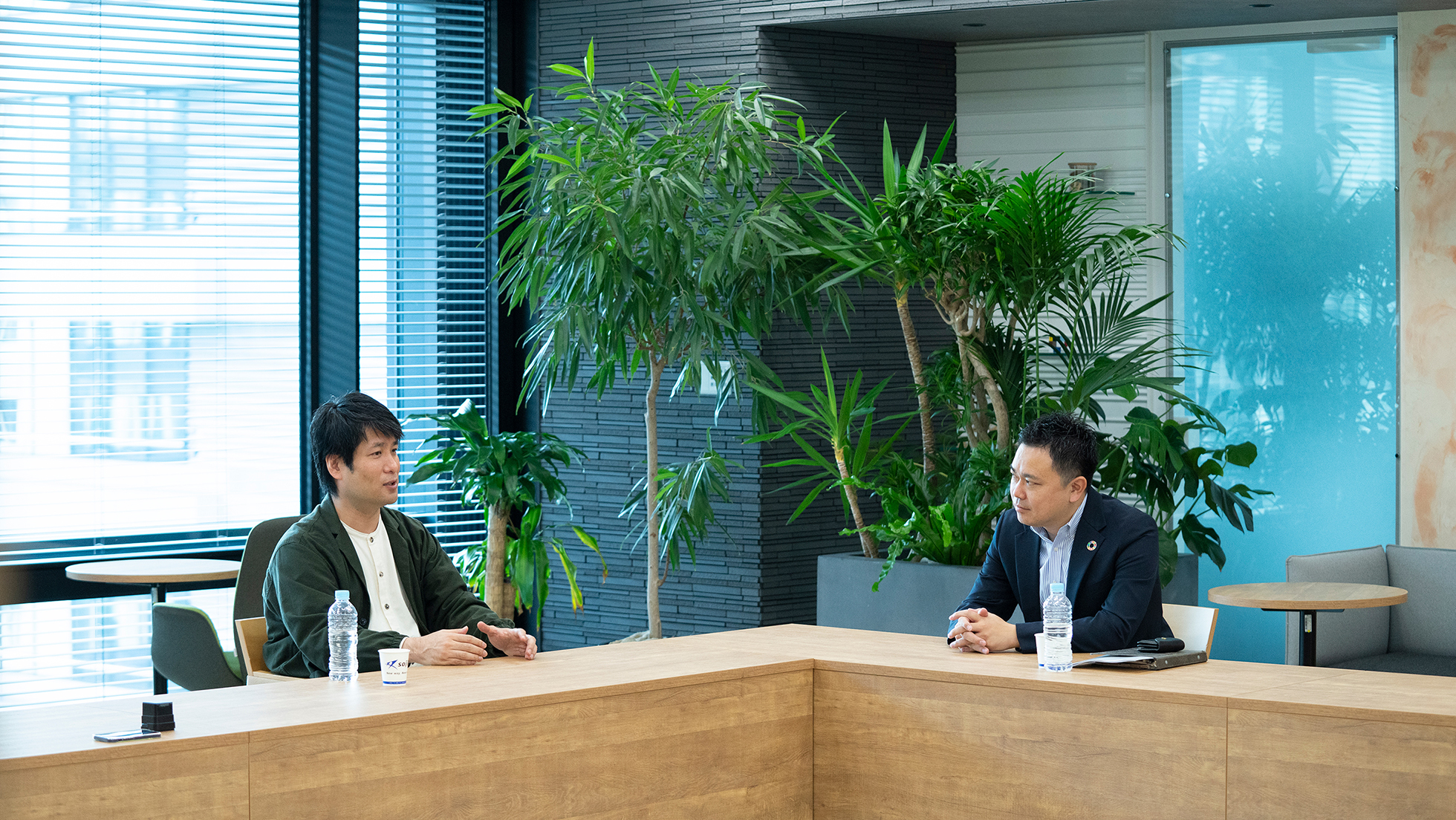
In 2025, 8 million “baby boomers” in Japan will be at least 75 years old, creating a proportion of elderly citizens that is unprecedented in any country. The challenges this super-aged society will pose—also known as the “2025 Problem”—include an aging population and declining birth rate, rising medical and nursing care costs, as well as an increased burden on the working-age population and ballooning social security costs. While the outlook may at first seem negative, a society of seniors need not be bleak. Sojitz Corporation has invested in Anshin Support Co., Ltd., a startup taking steps to create a world in which the elderly can live in comfort by providing solutions in anticipation of the impending 2025 problem. Anshin Support is developing home monitoring services for the elderly, among other services for seniors. Ryo Yamazaki creates community design-based initiatives that help people in local communities across Japan connect and solve problems. We spoke with Yamazaki and Koichi Koga, president of Anshin Support about how to help people connect easily and comfortably in a super-aged society.
Interview_Shinri Kobayashi
Photograph_Masayuki Nakaya
Edit / Text_Shota Kato (Original Japanese)
――Please share your views on the 2025 problem. How do you see the coming super-aged society from the perspective of community design?
Yamazaki: I think that the most serious impact will be felt in major urban areas. The huge population of residents who are 75 years old or older has been called the “2025 problem” for Japan as a whole, with the greater Tokyo metropolitan area being the primary region that will be affected.
――So, you are saying that the issue is mainly specific to Tokyo.
Yamazaki:Tokyo is a place where people have tried to pursue stress-free lives by limiting their connections with others. If rural areas are places where people successfully navigate the burdens and obligations of having close connections with others, then we can say that Tokyo and other large cities are places that have gathered people who want to escape from such ties and live freely.
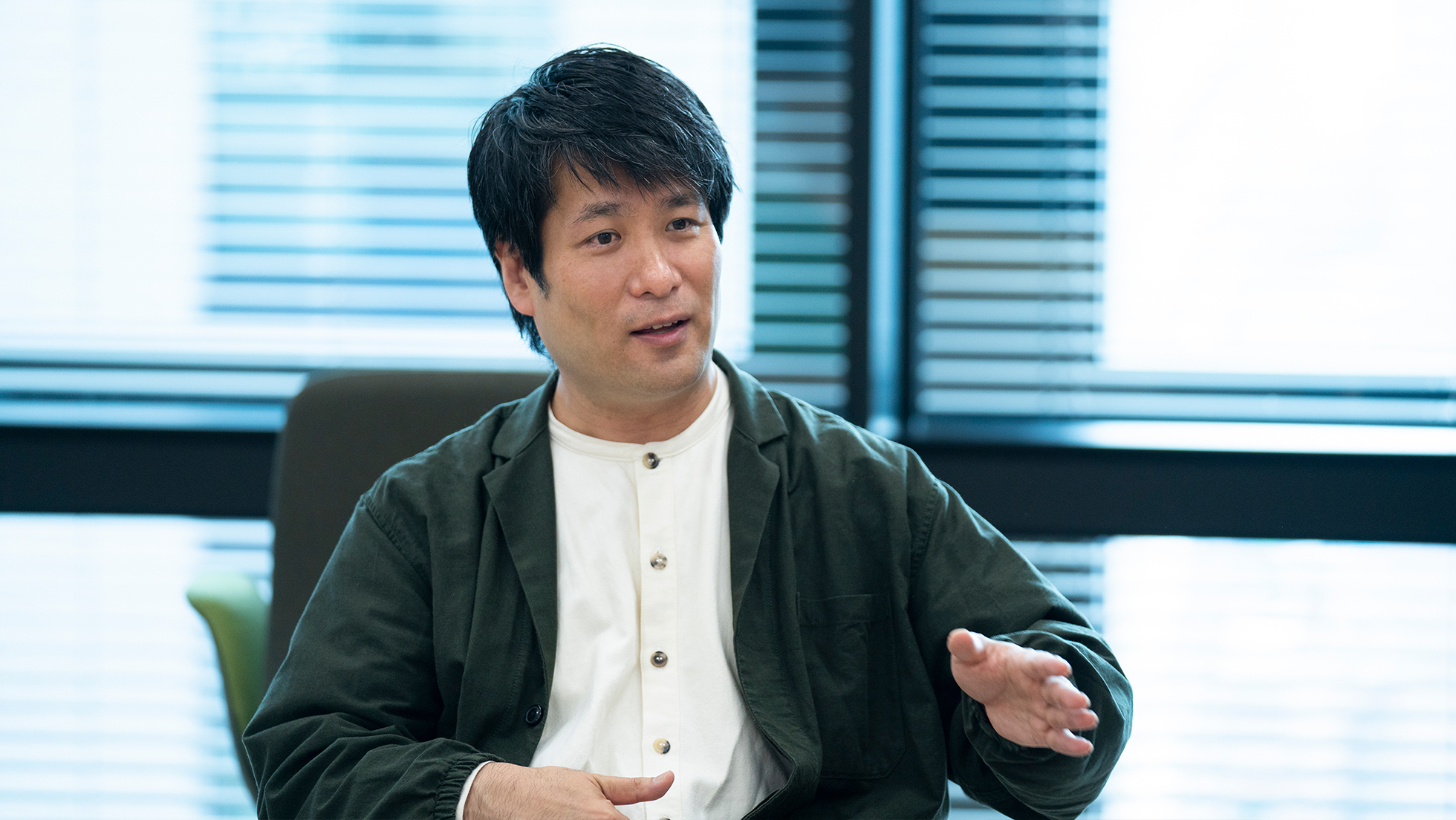
――Why would people want to live in a large city if it means severing their connections?
Yamazaki:In Japan, there is a culture of taking care of and looking after the elderly. That has been the way of life in rural areas. But that could feel like a huge burden if you're not the oldest child in the family, because traditionally everyone except the eldest son was free to leave home as they pleased. That “freedom” is a bit complicated and uncertain, but it seemed very appealing to many people.
Tokyo was perceived as providing access to fashionable clothing, cutting-edge information, the freedom to choose your career, and countless opportunities to meet people. But it turns out that advertising created this perception. People later found that the freedom they expected doesn’t really exist.
Koga:People from the countryside were drawn to Tokyo’s attractions as a city. But now, it seems that more and more people are leaving Tokyo because of the pandemic, right?
Yamazaki:Yes, that’s right. So why was there so much advertising claiming Tokyo was such an attractive place to live? Companies used that as a tactic to appeal to people. Basically, companies created a lot of advertising to attract people to Tokyo and other urban areas where they could consume products and services. The year 2025 is when the people who have come to Tokyo as a result of these advertising efforts will become senior citizens.
Are there any groundbreaking ideas for solving the issues posed by this situation? It all comes down to how we can create connections in Tokyo beyond the services we pay for. I think it's my role to design “connections” that fulfill that need.

――Mr. Koga, how do you view the current state of the super-aged society?
Koga: We have call centers for seniors and their families in Fukuoka, Oita, and Aichi, and the three centers are staffed by qualified caregivers and nurses who are available 24-hours-a-day, 365-days-a-year to check on the safety of the elderly and respond to emergency calls. As Mr. Yamazaki says, people need to help one another. But this is becoming more and more difficult even in rural areas. The elderly are living alone in rural areas while their adult children are working in big cities. These elderly people don't want to bother their children or neighbors, but they themselves are growing weaker.
That's where we come in to provide support to the elderly. Mr. Yamazaki, your expertise is community design, which is really about creating connections. How will you go about doing that?
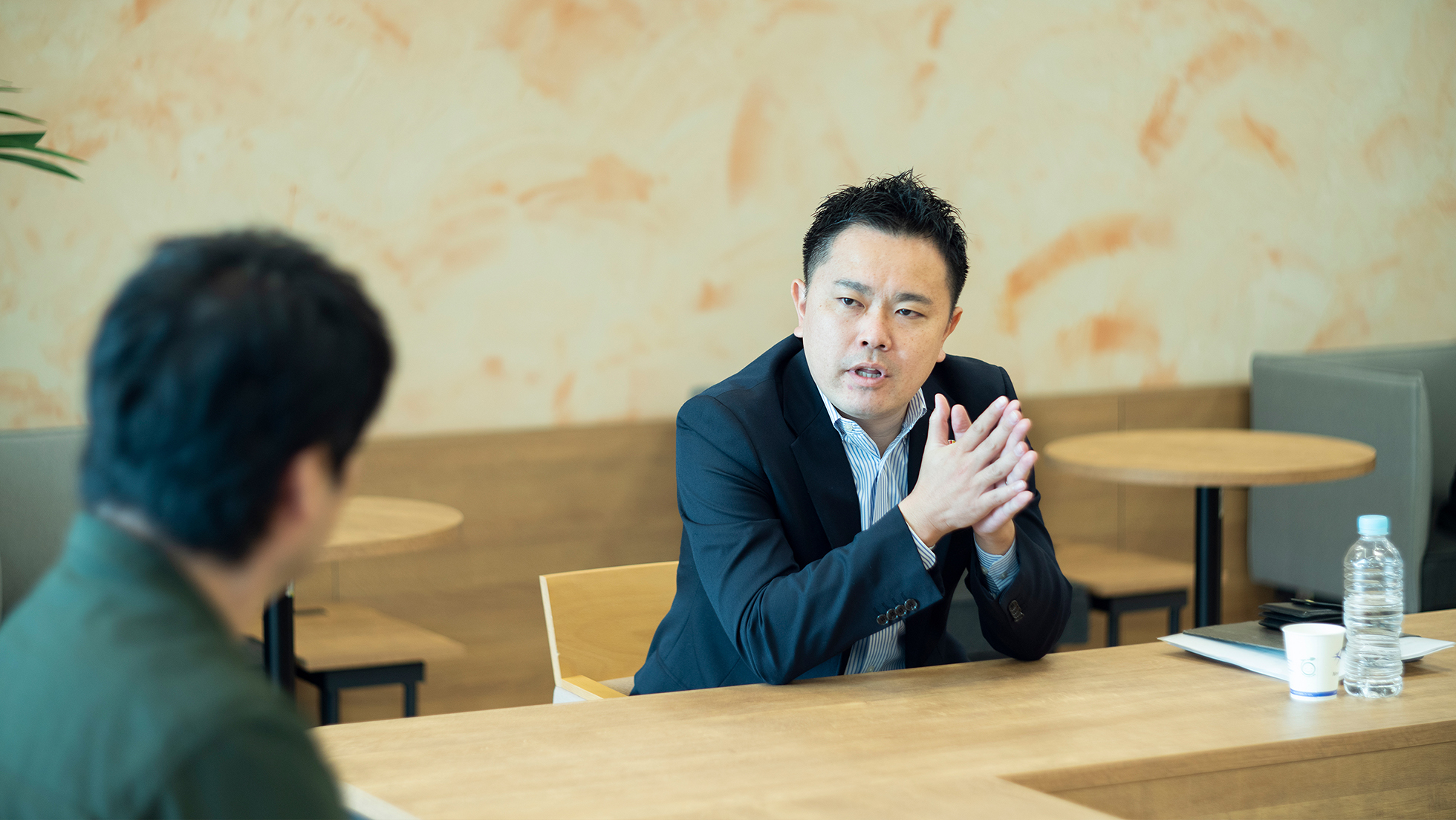
Yamazaki:For example, when I design a public space, I am aware that I need to listen to the opinions of the residents who will use the space. This is a natural part of designing private homes. The people paying for the home are also the ones who will use it. But for public facilities, it’s a bit different.
Koga:Your clients are local governments, but the clients of the local governments—in other words, the people who actually use the public facilities—are the residents, right?
Yamazaki:That’s right. If you don't listen to the people who will use the facilities, they may have difficulties using the facilities. That's why we hold workshops with the participation of local residents where we discuss how they want to use the facilities. After a year or so, the participants build relationships and come to be able to have honest discussions with each other. The opinions that emerge from this process are reflected in the final design. Bonds are formed as the people in the discussions become close with one another. In this way, when the time comes for the facility to open, the citizens will welcome users with open arms.
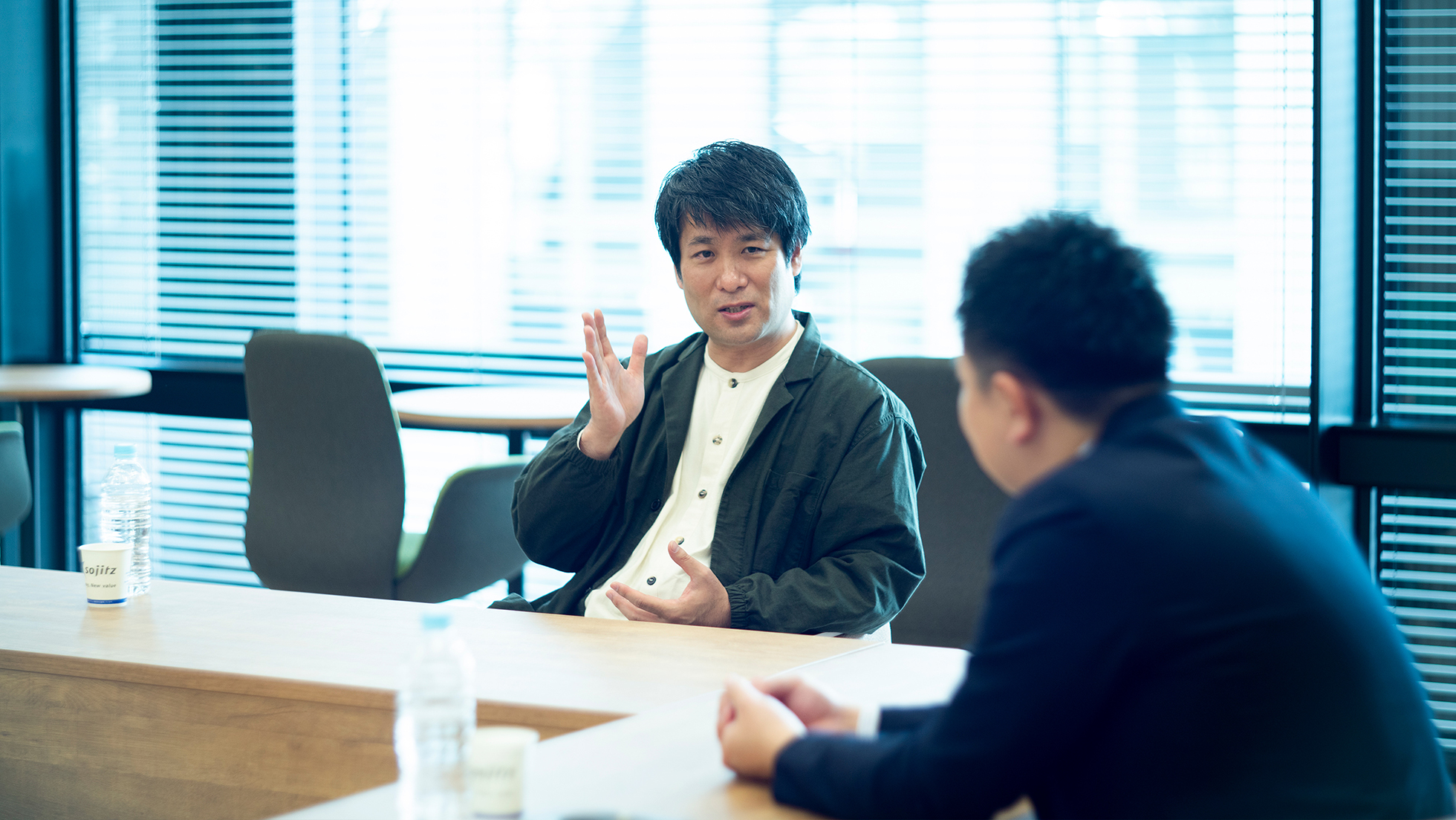
Koga:This allows every participant to take personal ownership in the design process, creating a more welcoming atmosphere.
Yamazaki:Residents helping one another through this process has led to marriages and the launching of businesses. You mentioned that Anshin Support is developing call centers, but I think the most important thing is not just how much users pay for the call center each month.
Koga:What exactly do you mean?
Yamazaki:There is a limit to the amount of support that people in the community can provide to each other, as it is becoming more and more difficult to actually enter other people's homes like you could in the past. Despite this, if something should happen to a user, the call center provides someone to call who is available 24-hours-a-day, 365-days-a-year. I think the sense of security that such a system provides must go beyond community ties.
For example, customers could use the service to get together with other registered users, which makes it more like a regional social networking service. If we can build this kind of platform in each region, I think the service will become even more attractive.
Koga:The call center staff and elderly users are not connected in a real-life, face-to-face way, so it's not as if the staff can go to the user’s house to solve a problem. Right now, we are collaborating with support service companies to help customers tackle problems in their daily lives. It's not uncommon for us to receive inquiries asking us to help change a light bulb or assist with resetting a circuit breaker.
Some users wake up every morning and tell us that they are going out to their fields, and then they later share what they picked that day. In this way, we maintain regular contact with users about the day-to-day issues in their lives.
Yamazaki:It’s sometimes difficult for users to share daily updates with their families.
Koga:Users say that because the call center staff are strangers rather than family members, it’s easier for them to express their true feelings. At the end of the day, these people just want to feel a connection. If we can have our system respond to that need, I think we can create a strong community with seniors.
Yamazaki:People want to share even trivial things with others. But they feel like a bother if they call their son or daughter every day to share such things. People have this concern precisely because it is a close relationship. But with Anshin Support, the users are paying a fee, so they are able to call with any kind of request, from really urgent matters to simple things.
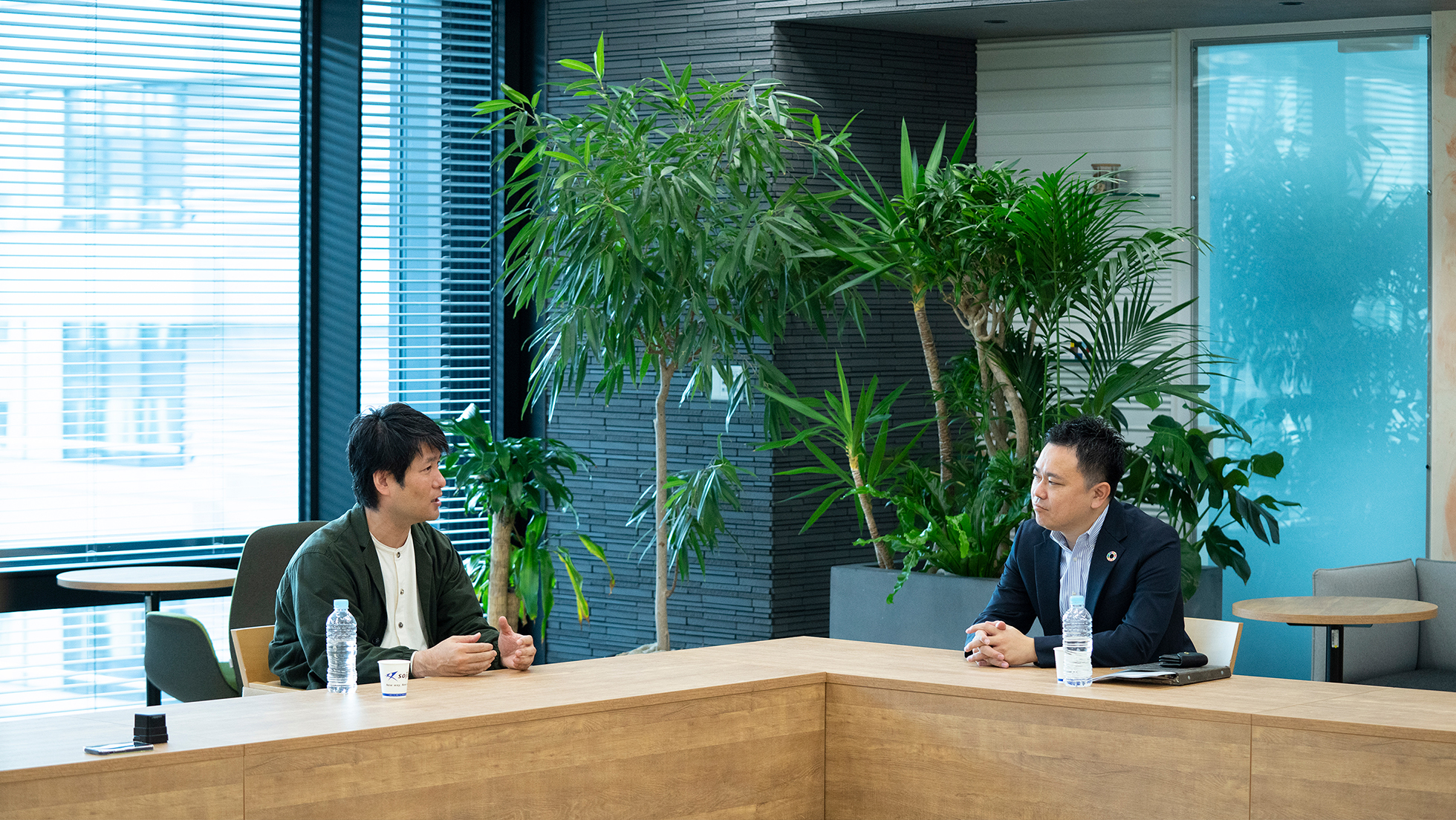
――I was very interested to hear about the formation of a community among Anshin Support users.
Yamazaki:I think building connections with one another helps elderly Anshin Support users feel useful for someone else, thereby giving them a sense of self-worth. When they get this feeling, they tend to become very energized.
In the past, we saw the principle of “weak ties” gain popularity, and I think Anshin Support really embodies this idea. Family, work, and school are places in which people build strong relationships, but they are not spaces where people are able to show their weaknesses. Weak ties are made with people in so-called “third places.” For instance, the people you meet in bars are not your lifelong friends, but there are some things that you can only talk about there. In these cases, if you reveal your true feelings and something goes wrong, you can sever the connection by simply not going to that bar again. However, when you have a strong relationship with someone like a family member, you can't just cut ties with them when an issue arises. In that sense, I think it is important to have weak relationships in order to maintain a healthy mind.
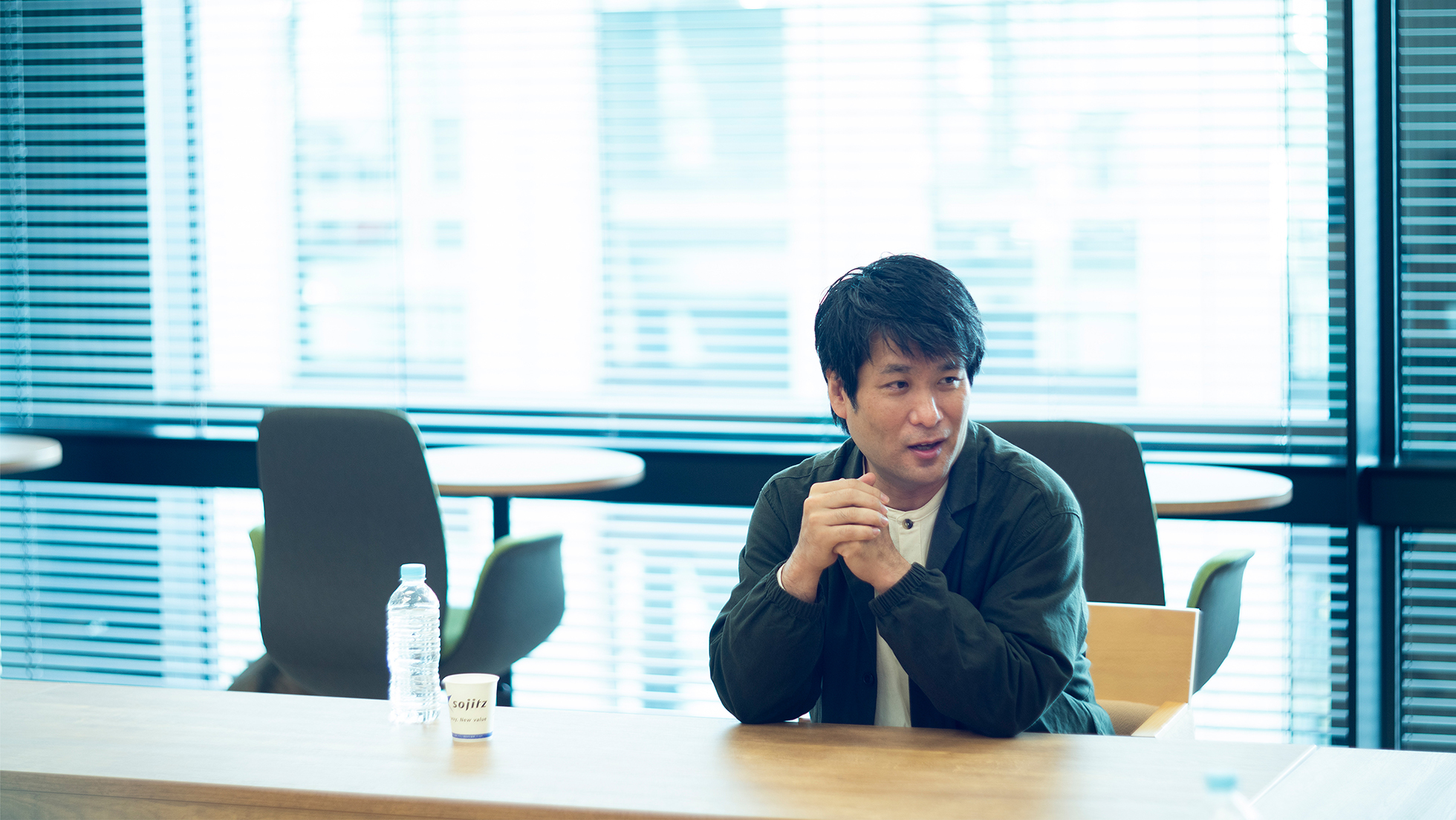
Koga:Call centers certainly provide a way to build “weak ties.” I don’t mean to put it in such stark terms, but users have a sense of security that if the relationship gets strained, they can just end the service. That's exactly why people feel comfortable asking about trivial things without fear of being shunned by family.
Yamazaki:I think we need to maintain that relaxed, worry-free mindset. The weak relationships in peoples’ lives highlight the value of their strong relationships with family, friends, and co-workers.
Koga:That's right. I originally started the Anshin Support business because a resident of a nearby apartment complex in my old neighborhood died without any family or friends. Even though there was a community in the apartment complex, the residents only realized what had happened a few days later. The sadness of this person’s lonely death impacted me in a way that was hard to put into words. So, in 2008, I set up an NPO call center as a place where elderly people and people living alone can feel free to call up and ask for help at any time.
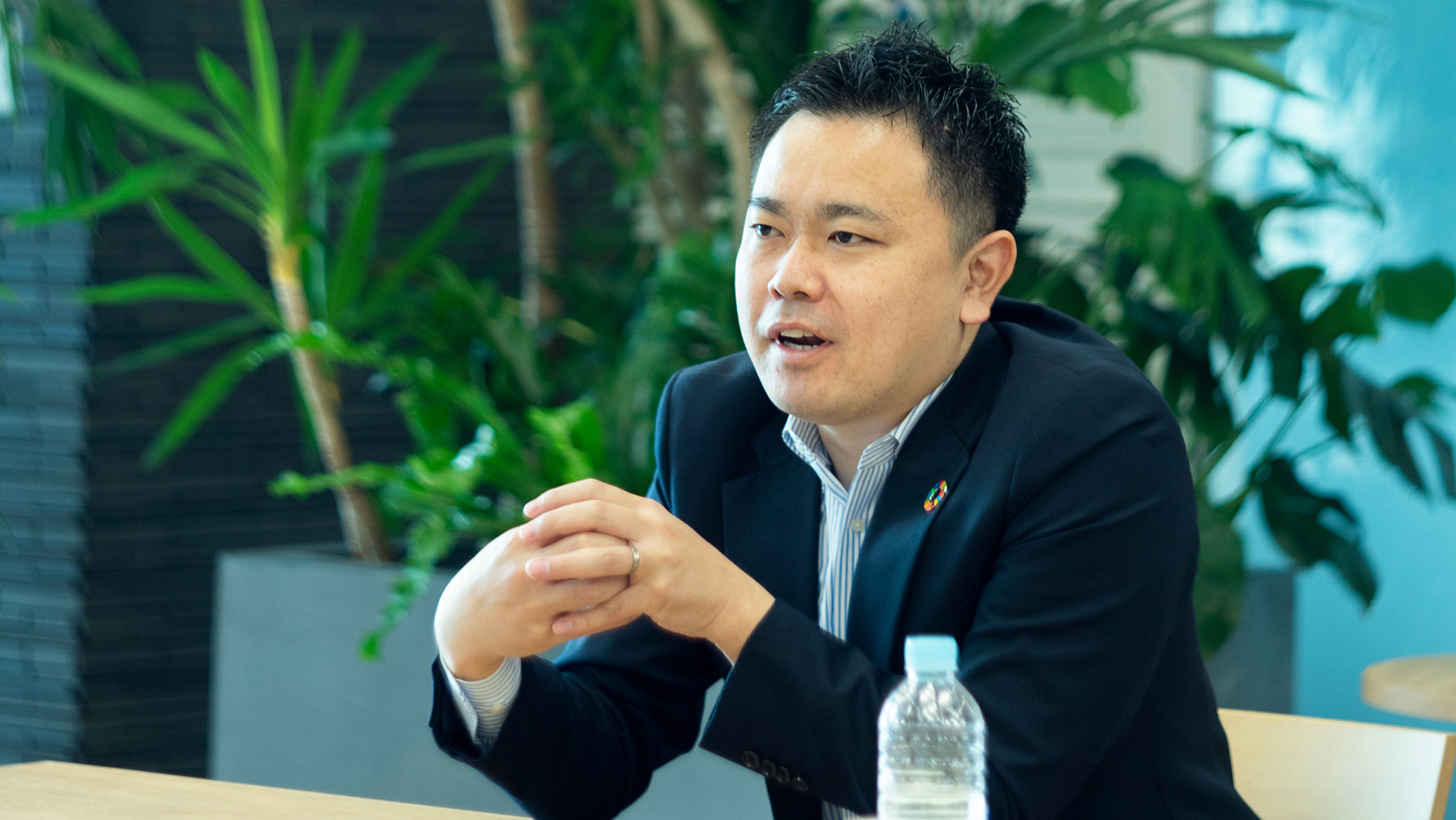
Yamazaki:That’s a moving story. I feel like this is the most important story of your work. Perhaps because that person had no connections with others, they felt like they had to manage on their own. That’s really painful, isn’t it? He or she must have sought out someone to help them at first. Not everyone has strong connections available to them. That's why it's important to have a service that can help people create relationships in the midst of such weak connections in society.
Koga:Thank you for the kind words. Now, we are also developing a service for Japanese company employees stationed overseas that will look after their parents in Japan. The service allows us to check on and inform the employees about the status of their parents, and companies are offering our services to employees as a benefit. While being keenly aware of the weak connections we have discussed, I would like to help create an environment where the elderly and their families can live with peace of mind.
Note: Employee titles and affiliations reflect those at the time of the article’s publication.
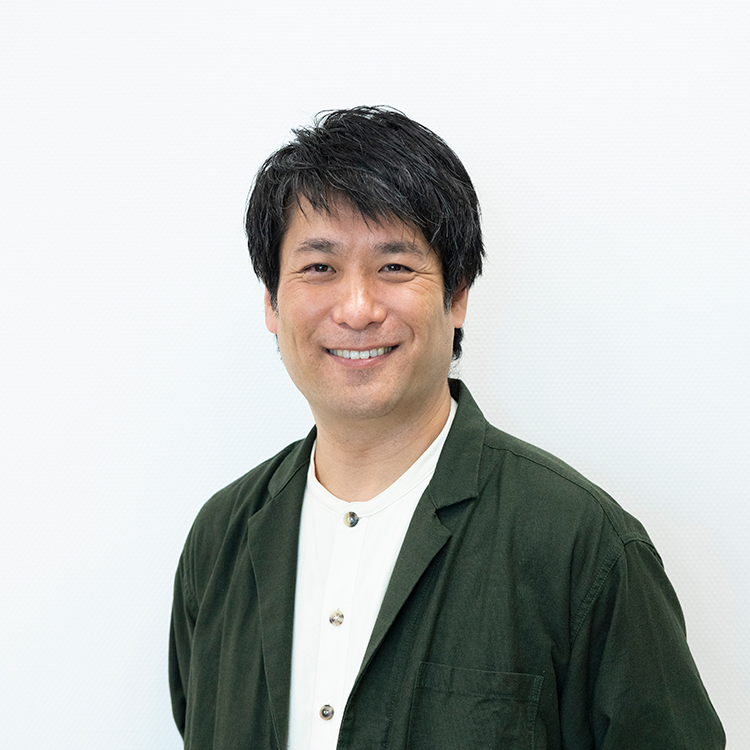
Ryo Yamazaki
Community designer/CEO of studio-L/Professor in the School of Architecture at Kwansei Gakuin University
Yamazaki is engaged in community design tailored to helping people solve problems in their local communities. He has been involved in numerous projects related to community development workshops, resident-led comprehensive planning, architecture and landscape design, citizen-led park management, and other activities. His publications include “The Origin of Community Design” (Ohta Publishing), “Shrinking Japan” (PHP Shinsho), and “Community Gohan Nikki” (Pie International).
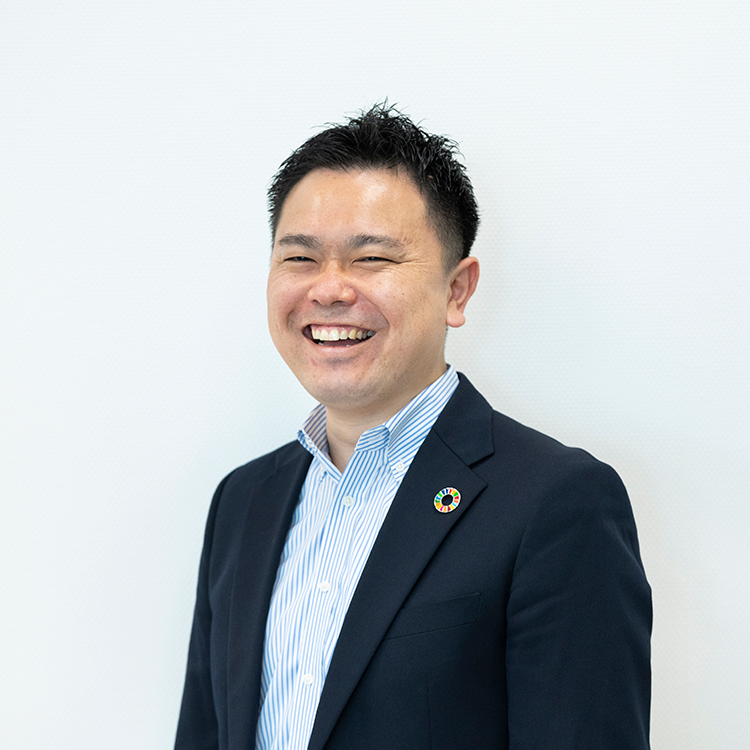
Koichi Koga
President of Anshin Support Co., Ltd.
In 2008, Koga established NPO Home Medical Support, which operates a monitoring service, an emergency notification system business, and call centers to monitor the wellbeing of the elderly. In 2017, he established Anshin Support Co., Ltd., and he develops monitoring and safety confirmation services for the elderly, with the aim of creating a society where elderly citizens can live with peace of mind.